#Reza Aslan
Explore tagged Tumblr posts
Text
Prophets don't create religions. Prophets reform their own religions.
Jesus did not create Christianity, he was a Jew reforming Judaism. The Buddha was not a Buddhist, the Buddha was a Hindu reforming Hinduism. The prophet Mohammed (PBUH) did not create Islam. Over and over again in the Quran he's constantly saying: this is not a new message, this is not a new religion, this is the exact same message that was given to every prophet that came before. Their god and your god are the same. It's the prophet's followers, regardless of what religion you're talking about, who are then tasked with creating some kind of institutionalized Thing out of the prophet's words and deeds. All religions were created by followers of the prophet, not by the prophet themself.
—Reza Aslan
I was listening to this interview with Aslan and very struck by this idea. From what I know, I agree with the statement about Jesus, but don't know enough to know if he's right about the Buddha and Mohammed (PBUH).
Very interested on thoughts about this from people in the know.
43 notes
·
View notes
Text

2 notes
·
View notes
Text


W A ✝ C H I N G
A Documentary about White Christian Nationalism. And about how it's revived itself and been newly empowered through Trump's rhetoric and other politicians perverting Christianity.
Wrongly professing that this is a Christian nation founded on Christian principals. So they can remove other people's right to freedom of religion, to take away everyone's rights across the board.
FIRST AMENDMENT ESTABLISHMENT CLAUSE:
"Congress cannot make laws that establish a religion or prohibit the free exercise of religion."
__________________________________________
The First Amendment provides that Congress make no law respecting an establishment of religion or prohibiting its free exercise. It protects freedom of speech, the press, assembly, and the right to petition the Government for a redress of grievances.
Trump idolatry. He's a golden calf at Sinai. A cult image.
#GOD & COUNTRY (2024)#Simone Campbell#William J. Barber II#Reza Aslan#Russell Moore#Kristin Kobes Du Mez#Anthea Butler#Rob Schenck#Andrew L. Whitehead#Andrew L. Seidel#Doug Pagitt#Jemar Tisby#Skye Jethani#David A. French#Katherine Stewart (journalist)#Rob Boston#Charlie Sykes#DOCUMENTARY#Dan Partland
1 note
·
View note
Text
youtube
the daily show - reza aslan
"why hasn't god just settled this?"
1 note
·
View note
Text
Imperialism, Israel, Hamas, and “Life of Brian”
Over the Thanksgiving holiday, our family watched together one of our favorite films, “Life of Brian.” It’s the comic story of Brian Cohen, a Jewish man born on the same night as Jesus of Nazareth in an adjoining stable. Like the historical Jesus (described for instance in books like Reza Aslan’s Zealot), Brian becomes part of a political resistance movement intent on expelling Roman occupiers…
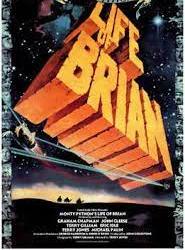
View On WordPress
#Calgacus#Crucifixion#Divide & Rule#Hamas#Israel#Jesus#Life of Brian#Monty Python#Oct 7th Hamas Attack#Propaganda#Reza Aslan#UN Charter Article 51#Zealot#Zionism
0 notes
Text
Yellowjackets has infected my mind so hard, I’m reading a book right now on the image of god and the origins of religion and all I can think about is how it applies the the origins of the cult in yj.
I am unhealthily obsessed.
6 notes
·
View notes
Text
The lesson to be learned from the epic life and tragic death of Howard Baskerville is that the markers of identity we rely on to separate ourselves into different tribes serve only to mask the humanity we all hold in common.
1 note
·
View note
Text
List of notable Muslim allies of queer, trans or LGBTQI+ folks
Imam al-Nawawi – ally of Mukhannathun or trans femmes, female transsexuals and effeminate queers
Saint Khawaja Gharib Nawaz – ally and patron of Hijra and Khawaja Sara communities
Saint Baba Bulleh Shah – ally and patron of Muslim Khawaja Sira communities
Saint Lal Shabaz Qalander – patron of Khawaja Sira & trans Muslim communities
Abu Muhammad Ali Ibn Hazm – ally of queer Muslims
Ayatollah Ruhollah Khomeini - ally of transgender & intersex folks
Sheikh Muhammad Sayyid Tantawi - ally of trans & intersex folks
Amina Wadud - ally of LGBTQI+ Muslims, founder of Queer Islamic Studies and Theology (QIST)
Gulbanu Khaki/Gul Khaki - ally of LGBTQ+ muslims, mother of a gay imam
Khaled Hosseini - ally of transgender & proud muslim dad of a transgender child
Siddika Jessa - LGBTQI+ activist, mother of a gay muslim son
Ani Zonneveld
Pamela Taylor
Laura Silver
Omid Safi
Kecia Ali
Ghazala Anwar
Ensaf Haider
Saleemah Abdul-Ghafur
Farid Esack
Zaitun Mohamed Kasim/Toni Mohamed Kasim
Anne-Sophie Monsinay
Imam Kahina Bahloul
Imam Philip Tuley
Scott Siraj al-Haqq Kugle
Farouk Peru
Abdennur Prado
Ingrid Mattson
Hasan Minhaj
Reza Aslan
Alia Bano
Zaid Ibrahim
Azahn Munas
Ayman Fadel
Inayat Bunglawala
Shahla Khan Salter
Nakia Jackson
Jeewan Chanicka
Taj Hargey
Michael Muhammad Knight
Maajid Nawaz
Shehnilla Mohamed
Mustafa Akyol
Writer Sabina Khan
Activist Jerin Arifa
Urvah Khan - LGBTQI+ ally, co-founder of Muslim Pride Toronto
Imam Khaleel Mohammed
Imam Tareq Oubrou
Imam Dr Rashied Omar
Shaykha Fariha Fatima al-Jerrahi
Shaykha Amina Teslima al-Jerrahi
Scholar Hussein Abdullatif
Maysoun Douas
Fátima Taleb
Aydan Özoğuz
Omid Nouripour
Özcan Mutlu
Ekin Deligöz
Cem Özdemir
Artist Nadia Khan
Marina Mahathir
Siti Musdah Mulia
Karima Bennoune
Grand Mufti Sheikh Assadullah Mwale
Muneeb Qadir
Dr. Amir Hussein
Dr. Sana Yasir
Dr. Sali Berisha
Dr. Omer Adil
Hashim Thaçi
Albin Kurti
Supermodel Nadia Hussain
Irish-Bangladeshi singer Joy Elizabeth Akther Crookes
Salma Hayek
Fouad Yammine
Pakistani Director Asim Abbasi
Pakistani Actress Nadia Jamil
Indian Actor Saqib Saleem
Indian Actor Irrfan Khan
Indian Actor Aamir Khan
Indian Actress Zeenat Khan/Aman
Indian Actress Shabana Azmi
Indian Actress Saba Azad
Indian Actress Sara Ali Khan
Indian Actress Huma Qureshi
Indian Director Zoya Khan
Pakistani Actor Furqan Qureshi
Bangladeshi Actress Azmeri Haque Badhon
Actor Muneeb Butt
Indian Actress Zareen Khan
Indian Actor Imran khan
Pakistani Actress Mehar Bano
Filmmaker Faruk Kabir
Filmmaker Saim Sadiq
Filmmaker Sharmeen Obaid-Chinoy
Riz Ahmed
Zayn Malik
Sally El-Hosaini
Malala Yousefzai
Hafid Abbas
Hojatoleslam Kariminia
Singer Sherina Munaf
Writer Alifa Rifaat
Writer Ismat Chughtai
Activist Nida Mushtaq
Activist Aan Anshori
Abdul Muiz Ghazali
Kyai Hussein Muhammad
Marzuki Wahid
Gigi Hadid
President Abdurrahman Wahid (Gus Dur) - ally of waria or transgender females
Sinta Nuriyah - ally of trans & waria folks
Politician Keith Ellison
Mayor Sadiq Khan
Politician Ilhan Omar
Politician Rashida Tlaib
Politician Rushanara Ali
Politician Nabilah Islam
Politician Shahana Hanif
Politician Rama Yade
Politician Humza Yousaf
Politician Zarah Sultana
UK Sectratary General Zara Mohammed
Turkish politician Kemal Kılıçdaroğlu
Bengali Influencer Sobia Ameen
Shaykh Michael Mumisa
Muhammad Musharraf Hossain Bhuiyan
Mufti Abdur Rahman Azad - Hijra ally
Sheikh Hasina - Ally of hijra-intersex communities
Lawyer Iftikhar Chaudhry
Amani Al-Khatahtbeh
Professor Amel Grami
Professor Muhammad Aslam Khaki
Mohammad Hashim Kamali
Mehrdad Alipour
Lawyer Imaan Mazari/Iman Mazari
Shireen Mazari
Syed Murad Ali Shah
41 notes
·
View notes
Text
some notes on sufism

The other day I went to the Harvard Divinity School Muslims iftar (the meal that breaks the fast during Ramadan), which was followed by a concert of Turkish music that is traditionally performed in Sufi lodges in Istambul. Before the music began, the professor I’ve been auditing Islamic literature classes with read some verses from Rumi’s Masnavi and offered a meditation on fasting through an interpretation of the lines: “If you have closed this mouth, another mouth is opened, which becomes an eater of the morsels of mysteries.” That is the nature of mystical knowledge—gnosis (or maʿrifa) is not understood intellectually, but tasted (dhawq). The closing of the bodily mouth is an opening of the spiritual mouth. He asked us to listen to the music with the inner heart.
I went with my friend S, who has been nudging me toward conversion. I’ve been allergic to religion most of my life because I’m not really much of a joiner. I distinctly remember being in (Catholic) Sunday School as a child and thinking to myself: This sounds fake to me. As in, made-up, irrational. The people who treated the fanciful stories like fact seemed like crackpots to me, even to my child-mind. I don’t think I ever believed in Santa either—I guess my disposition was innately skeptical; perhaps that contributed to my identification with anarchism from when I was 13 or 14. Yet at the same time, my feeling for the invisible, for the world of the dead, was always quite strong, even when it was unstitched from a belief system. As a kid I would wander the house alone at night, thinking I could hear my dead parakeet chirping from a shoebox in the garage.
I hated Sunday School. While I was always good at school-school (at least when I was a child, before I became an incorrigible truant), I was terrible at Sunday School. Because it seemed like hocus-pocus to me, none of it stuck. My classmates had internalized all the stories I thought were outlandish. During mass I would think exclusively about donuts, the ones we would buy from the ladies who would sell them as a fundraiser. I’ve thought about returning to Catholicism, but sadly, after the post-1970s political realignment in the US, all the leftist Catholics (the Marxists who loathed the Vietnam War and exposed the FBI’s COINTELPRO) are gone. As much as I love reading Catholic mystics (St Teresa of Avila, St John of the Cross, Angela of Foligno, Hildegard of Bingen, Meister Eckhart, Marguerite Porete, and others), Christian mysticism is more individualist than Islamic mysticism—asceticism and separation from the group is the way to commune with God, while Islamic mysticism is rooted in communal practices like sama (singing, dancing, reciting poetry, playing/listening to music) and dhikr (communal prayer for the remembrance of God). While Christian mysticism bears the imprint of the Neoplatonist trajectory of ascent, for Sufism, the trajectory is shaped like a paisley. After fana (annihilation of the ego/union with God/dying before you die), there is baqaa or subsistence, a return of sorts.
I also much prefer the Islamic orientation to the created world than the Christian one, for in Islam, everything in creation can be understood as the breath or speech of God. The Hadith on which Sufi cosmology is based reads, “I was a hidden Treasure and Loved to be known, so I created the world that I might be known.” All of creation is a mirror to reflect God (this is why you must polish the rust from your heart, for the human heart can manifest all the names and qualities of God). In the Islamic mystical tradition there is an affirmation of the created world even though God and creation are not the same (as is the case in Pantheism). Everything has ontology. Nothing has ontology. The Sufi metaphysicians ask us to see with two eyes. The drop is not the ocean at the same time it cannot be separated from the ocean.
7 years ago I read Reza Aslan’s God: A Human History. After sampling the platter of world religions I joked to myself, Hmmm, if I had to pick the one I vibe with most, I guess it would be Sufism (Islamic mysticism). I didn’t know anything about Sufism other than the Rumi and Hafez poetry I read as a teenager, but the way Aslan described Ibn ‘Arabi’s concept of 'wahadat al-wujud' (or Unity of Being) reminded me of Spinozism. I guess what I’m trying to say is...I just think Sufi metaphysics is...right. Or, it speaks to how I tend to think about reality. It’s not something I can prove (that I don’t exist, while at the same time I am part of the ALL that is God), but it makes the most sense to me.
In the Sufi literature class, S jokes to me: “You’re the only non-Muslim in this class.” The same was probably true at the iftar + concert. S points to someone from the class: “The Maoist is a recent convert. This is their first time fasting for Ramadan.” “Is [our professor] fasting?” “Of course. I saw him at the iftar last night and talked to him about translation. I told him it’s ghastly to try to fit Persian verse into an English rhyme scheme. He agreed with me.” (We are clearly partisans of blank verse translations… yet so much of what’s out there has been poorly translated or not translated at all.)
Much of the lyrics sung with the gorgeous music were verses written by the great Turkish-language Sufi poet and mystic Yunus Emre ("the Dante of Turkey," I whispered to S). S was ecstatic listening to the haunting ney (a kind of flute). We just so happened to be sitting in the same row as the professor. I tapped S and whispered that it looked like he was really enjoying the music. He was smiling with his eyes closed and swaying his head from side to side. He looked like he was having...a profound experience. This prof usually has what I guess you’d call ‘resting bitch face’ (which I always found funny because it runs counter to his sweet and gentle personality). But not at the concert. Pure bliss was painted on his face. It was then that it dawned on me that Sufism, for him, was probably something more than a scholarly interest. I thought about what it must have been like to discover something so beautiful and profound, and to know, in that moment, that your life will be changed forever—you might go off to Iran and devote your entire life to studying medieval texts.
Of course this Ramadan I am thinking continuously about the genocide in Gaza, how an entire population is being starved to death by the sadistic leaders of Israel, how terrible it must be to be bombed and shot at during the holy month, or to break your fast with boiled grass and animal feed. I feel truly ashamed to come from a country that is complicit in this violence. I hope everyone continues to apply pressure to end this war—it feels hopeless now, but it is making a difference.
26 notes
·
View notes
Text

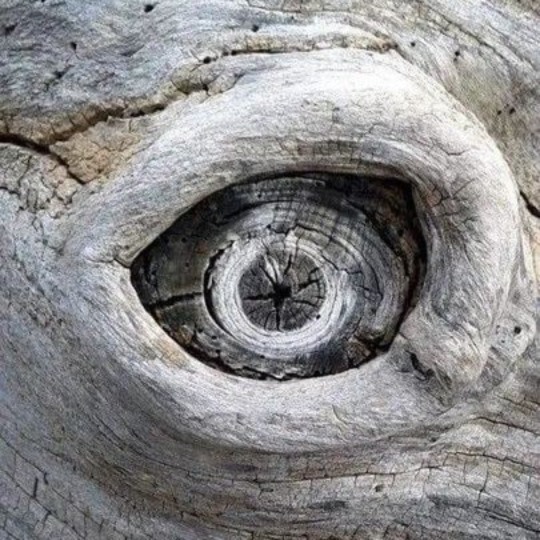




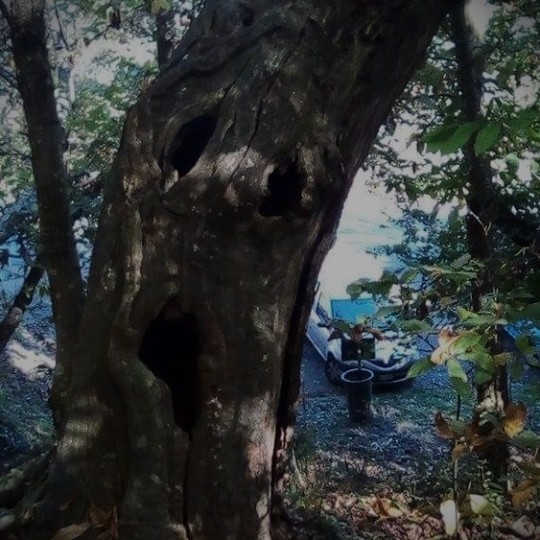
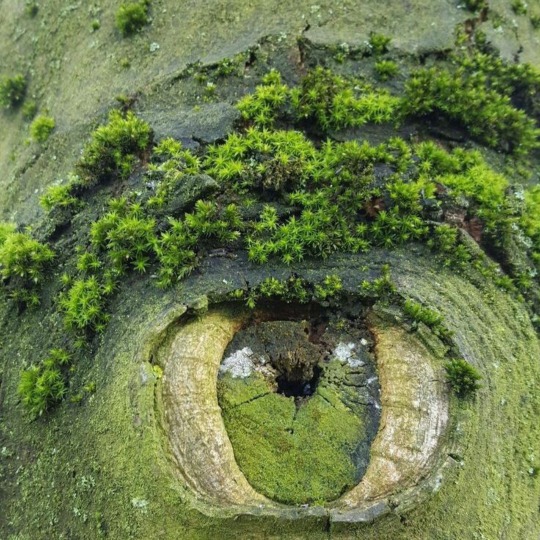


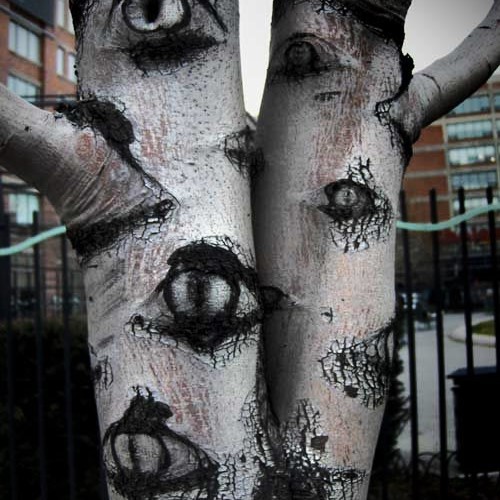
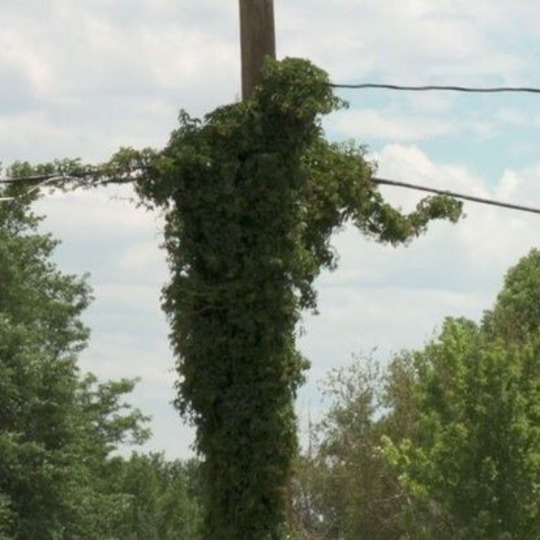

God: A Human History. Reza Aslan.
32 notes
·
View notes
Text
2024 Book List
Here's a list of some new books I've found interesting and enjoyable in the last year or so. If you have any recommendations, send them in! (See previous book lists here)
Beyond Religion: Ethics for a Whole World by Dalai Lama (2020)
Love and Quasars: An Astrophysicist Reconciles Faith and Science by Paul Wallace (2019)
Stars Beneath Us: Finding God in the Evolving Cosmos by Paul Wallace (2015)
Return of the God Hypothesis: Three Scientific Discoveries That Reveal the Mind Behind the Universe by Stephen C. Meyer (2021)
The Essential Writings of Christian Mysticism by Bernard McGinn (2006)
Pastrix: The Cranky, Beautiful Faith of a Sinner & Saint by Nadia Bolz-Weber (2014)
The Making of Biblical Womanhood: How the Subjugation of Women Became Gospel Truth by Beth Allison Barr (2021)
That All Shall Be Saved: Heaven, Hell, & Universal Salvation by David Bentley Hart (2019)
The Gospel of Inclusion: Reaching Beyond Religious Fundamentalism to the True Love of God and Self by Carlton Pearson (2009)
Is God Real? Exploring the Ultimate Question of Life by Lee Strobel (2023)
Why? Making Sense of God's Will by Adam Hamilton (2018)
Losing Our Religion: An Altar Call for Evangelical America by Russell Moore (2023)
The Psychology of Christian Nationalism: Why People Are Drawn In and How to Talk Across the Divide by Pamela Cooper-White (2022)
How Jesus Became God: the Exaltation of a Jewish Preacher from Galilee by Bart D. Ehrman (2015)
The Unseen Realm: Recovering the Supernatural Worldview of the Bible by Michael S. Heiser (2015)
No god but God: The Origins, Evolution, and Future of Islam by Reza Aslan (2011)
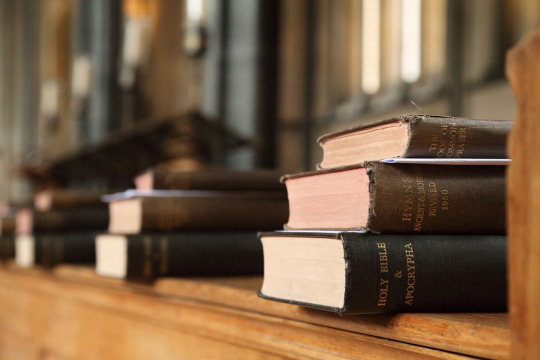
14 notes
·
View notes
Text
Creo que casi cualquier cosa que nos ofrece la existencia puede ser una herramienta provechosa o un lastre desagradable, dependiendo del uso que le demos. Un buen ejemplo de ello yace aquí, en las redes sociales. En este medio pululan actitudes desagradables y desgastantes, las cuales a menudo consisten en arrojarnos odio los unos a los otros, muchas veces por razones nimias, muchas veces por motivos políticos (y unos gritan “¡Uribestias!” mientras otros responden encolerizados “¡Petristres!”, y no puedo menos que dudar en demasía de algún día ver una Colombia en paz cuando la mayor parte del tiempo estamos empujando a la otredad a coscorrones —je, je, me acordé de Germán Vargas Lleras— en lugar de tender puentes que nos unan como sociedad). Y al mismo tiempo, en las redes también están quienes prefieren compartir lo que, quizás, pudiera considerarse “bálsamos para el alma”: cuentas dedicadas exclusivamente a poemas, personas mostrándonos pinturas hermosas, o el usuario que entre meme y meme te habla brevemente de un libro, y luego resulta que es un texto que te deja maravillado.
Hace un par de años, alguien compartía en Twitter el enlace para leer en PDF el primero de los siete libros de “En busca del tiempo perdido”, y le quedo de por vida agradecido a esa persona anónima por engancharme a semejante obra. Una mujer de sonrisa hermosa me habló en Facebook de “El hombre mediocre”, y a pesar de ser un libro con poco más de un siglo, es una aguda y deliciosa radiografía de las sociedades latinoamericanas actuales. El año pasado, una morena de bucles preciosos y amante de los animalitos, y de nuevo en Twitter, compartía la imagen de la novela “Un caballero en Moscú”, que también resultó ser sencillamente todo un manjar. Y en algún hilo de esos de la red del pajarito azul, aparecía la pregunta por el origen de las religiones, y un muchacho, a todas luces bastante culto e interesante, intentaba responder a la pregunta a la vez que mencionaba tres libros: “Dios. Una historia humana”, “Las lagartijas no se hacen preguntas” y “Dios”. Pude hacerme al primero de esos tres títulos, y tal parece que, de nuevo, gracias a otra persona anónima en redes que te hace el regalo enorme de guiarte a una lectura interesante, tengo otra joyita entre manos. En redes sociales seguiremos tirándonos lodo mutuamente y compartiendo cosas bonitas. Y qué suerte lo segundo😊.
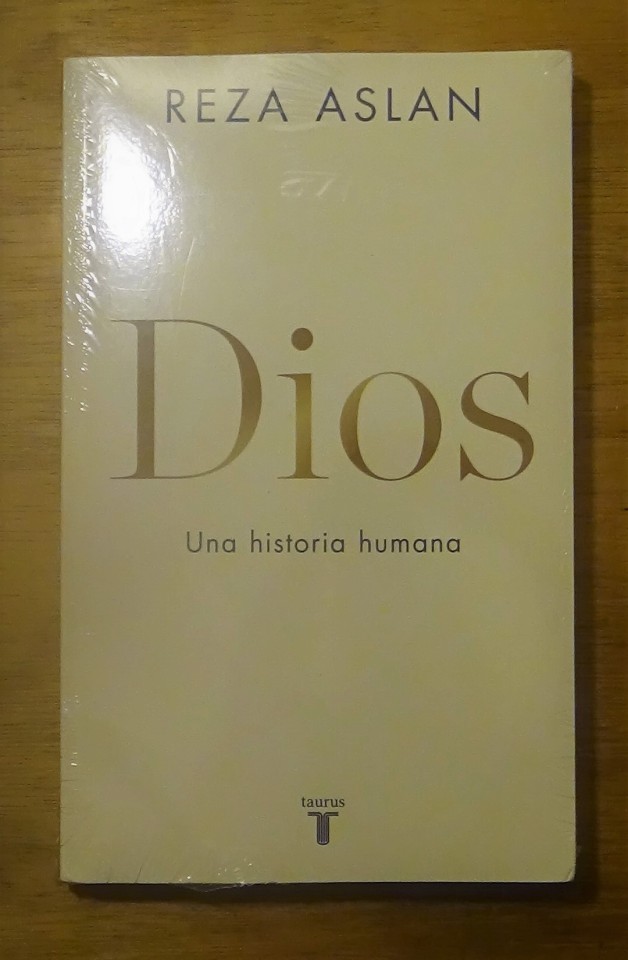
2 notes
·
View notes
Text
some of my fave fave books i think everyone should read (i know approximately 3 people will see rhis but i just wanted to make it for fun)
☆ braiding sweetgrass - robin wall kimmerer
☆ all about love - bell hooks
☆ the new life - orhan pamuk
☆ watership down - i forfot the author 💀
☆ earthlings - sayaka murata
☆ dark ecology - timothy morton
☆ the beauty of everyday things - soetsu yanagi
☆ after lockdown - bruno latour
☆ the mushroom at the end of the world - anna tsing
☆ speculative everything - anthony dunn and fiona raby
☆ how to do nothing - jenny odell
☆ im like a pdf but a girl girlblogging as a nomadic pedagogy - ester frieder
☆ the Tao te Ching
☆ Entangled Life - Merlin Sheldrake
☆ Dog Songs - Mary Oliver
☆ Radical Love - Omar Sadif
☆ No God but God - Reza Aslan
☆ Breasts and Eggs - Mieko Kawakami
☆ Masks - Fumiko Enchi
☆ Crying in Hmart - Michelle Zauner (japanese breakfast)
☆ The Sorrow of War - Bao Ninh
☆ The Crying of Lot 49 - Thomas Pynchon
26 notes
·
View notes
Link
6 notes
·
View notes
Text
2023 Favoritest Book Reads
Vineland - Pynchon, Thomas
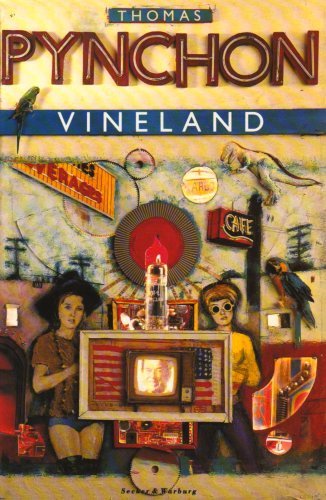
Prophet - Blaché, Sin & Helen Macdonald
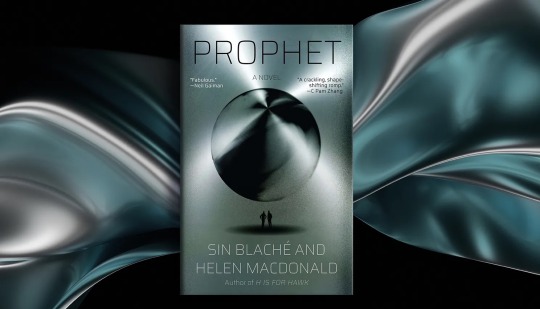
And the Ass Saw the Angel - Cave, Nick
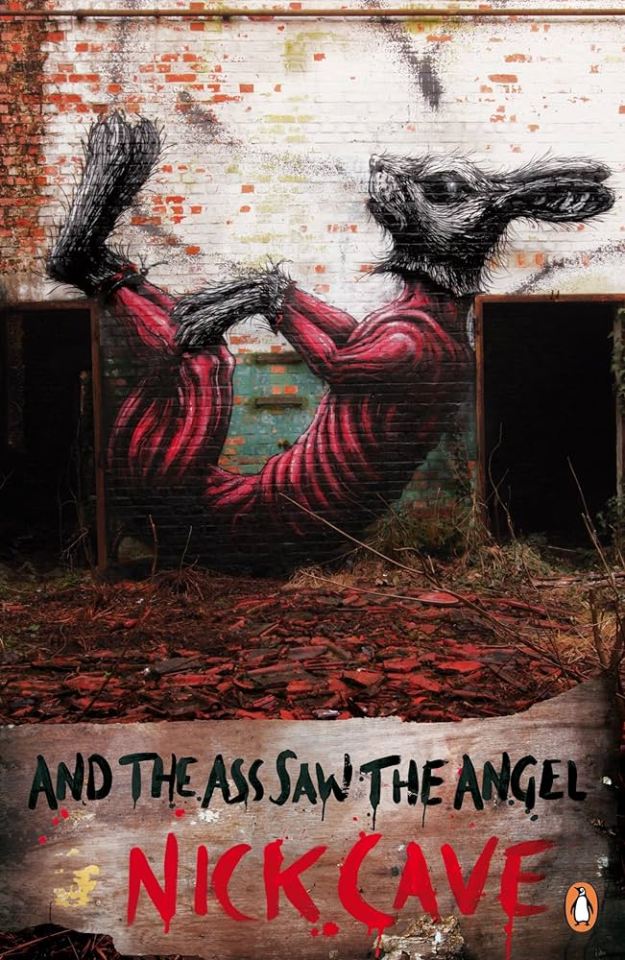
Lou Reed: The King of New York - Hermes, Will
The Color of Magic (Discworld, #1; Rincewind, #1) - Pratchett, Terry
Steal Like an Artist: 10 Things Nobody Told You About Being Creative - Kleon, Austin
Sonic Life: A Memoir - Moore, Thurston
The Fifth Season (The Broken Earth, #1) - Jemisin, N.K.
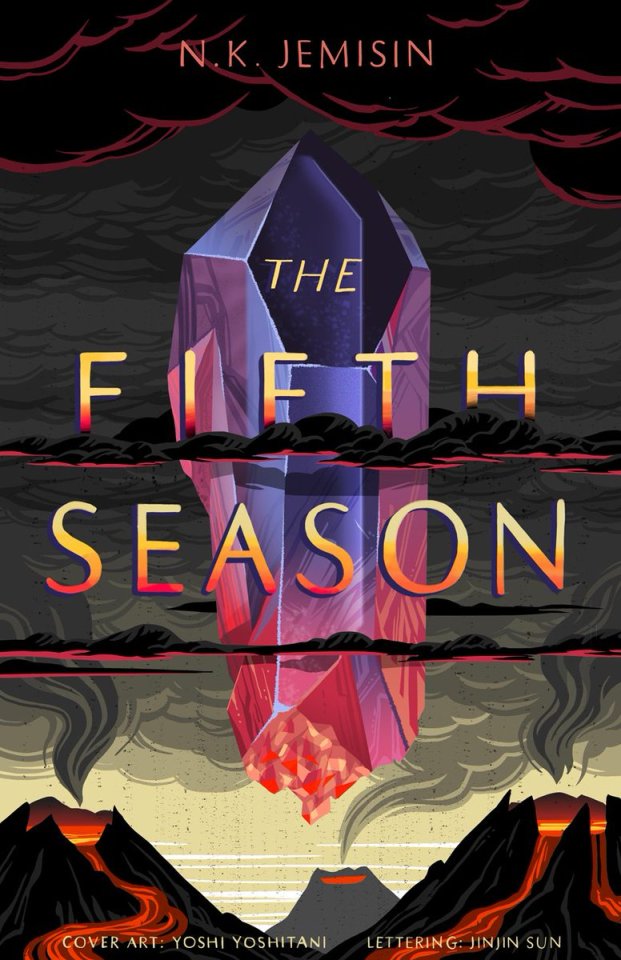
Fuzz: When Nature Breaks the Law - Roach, Mary
Everyone's a Aliebn When Ur a Aliebn Too - Sun, Jonny
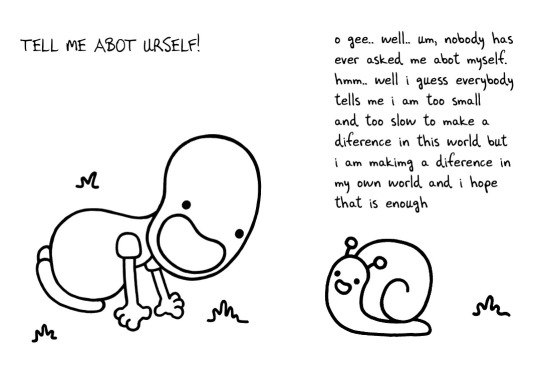
The Night Masquerade (Binti, #3) - Okorafor, Nnedi
Home (Binti, #2) - Okorafor, Nnedi
Binti: Sacred Fire (Binti, #1.5) - Okorafor, Nnedi
Binti (Binti, #1) - Okorafor, Nnedi
Black Paradox - Ito, Junji

David Bowie's Low (33 1/3) - Wilcken, Hugo
Faith, Hope and Carnage - Cave, Nick
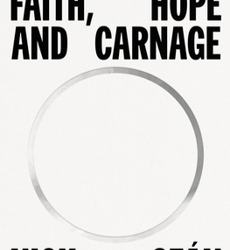
The Sirens of Titan - Vonnegut Jr., Kurt
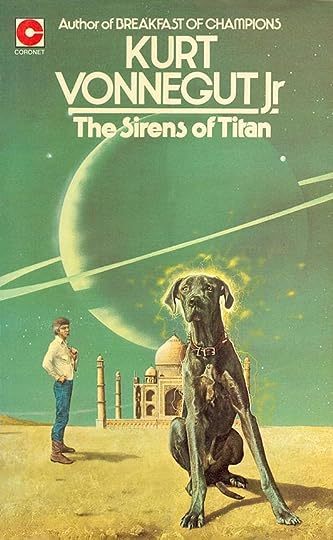
Zealot: The Life and Times of Jesus of Nazareth - Aslan, Reza
Smashed - Ito, Junji
Time Shelter - Gospodinov, Georgi
Brian Eno's Another Green World (33 1/3) - Dayal, Geeta
Armageddon in Retrospect - Vonnegut Jr., Kurt
Neverwhere (London Below, #1) - Gaiman, Neil
The Committed (The Sympathizer #2) - Nguyen, Viet Thanh
Into the Great Wide Open - Canty, Kevin
Mongrels - Jones, Stephen Graham
DisneyWar - Stewart, James B.
Bonk: The Curious Coupling of Science and Sex - Roach, Mary
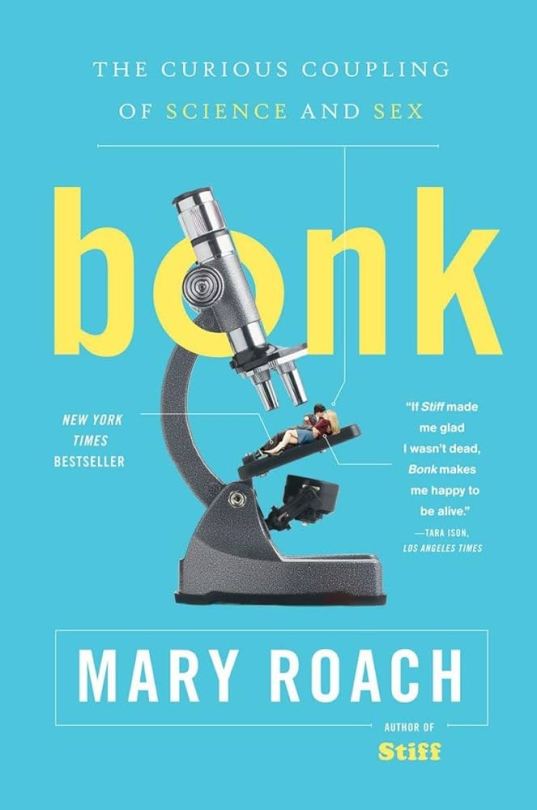
The Left Hand of Darkness - Le Guin, Ursula K.
My Bloody Valentine's Loveless (33 1/3) - McGonigal, Mike
Suttree - McCarthy, Cormac
Life's Work: A Memoir - Milch, David
The Invisible Life of Addie LaRue - Schwab, V.E.
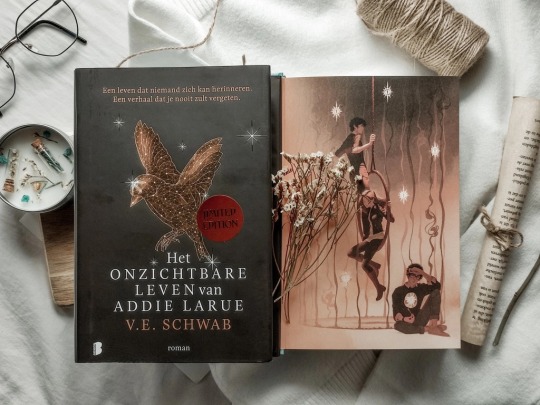
Against the Day - Pynchon, Thomas
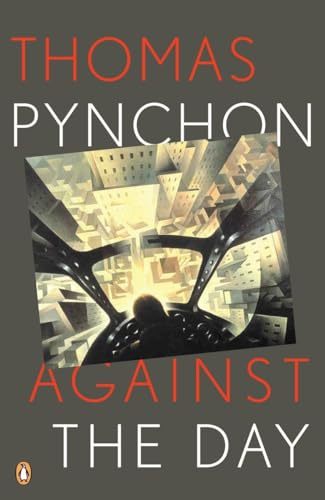
Burn It Down: Power, Complicity, and a Call for Change in Hollywood - Ryan, Maureen
Bruce Springsteen's Born in the USA (33 1/3) - Himes, Geoffrey
La Moustache - Carrère, Emmanuel
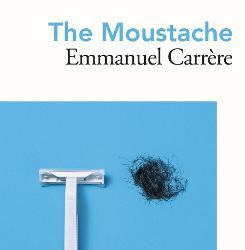
Janelle Monáe’s The ArchAndroid (33 1/3) - Favreau, Alyssa
Sooner or Later Everything Falls Into the Sea - Pinsker, Sarah
The Man Without a Shadow - Oates, Joyce Carol
The City & the City - Miéville, China
Mem - Morrow, Bethany C.
Sapiens: A Brief History of Humankind - Harari, Yuval Noah
Arcade Fire’s The Suburbs (33 1/3) - Eidelstein, Eric
Gutshot - Gray, Amelia
The Price of Time (Watch What You Wish For #1) - Tigner, Tim
The Revolution Was Televised: The Cops, Crooks, Slingers and Slayers Who Changed TV Drama Forever - Sepinwall, Alan
Just Kids - Smith, Patti
Sounds Like Titanic: A Memoir - Hindman, Jessica Chiccehitto
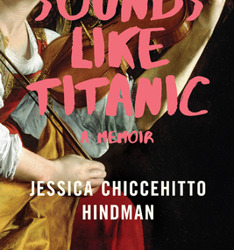
Flicker - Roszak, Theodore
Tinderbox: HBO's Ruthless Pursuit of New Frontiers - Miller, James Andrew
Flashback - Simmons, Dan
Flaming Lips' Zaireeka (33 1/3) - Richardson, Mark
The Sympathizer (The Sympathizer #1) - Nguyen, Viet Thanh
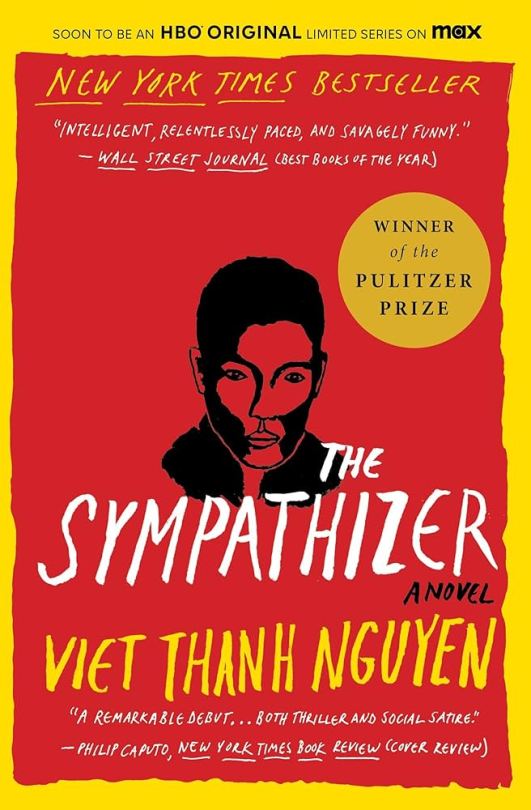
Pavement's Wowee Zowee (33 1/3) - Charles, Bryan
Neuromancer (Sprawl, #1) - Gibson, William
Invisible Cities - Calvino, Italo
Don't Fear the Reaper (The Indian Lake Trilogy, #2) - Jones, Stephen Graham

The Wes Anderson Collection - Seitz, Matt Zoller
Flow My Tears, the Policeman Said - Dick, Philip K.
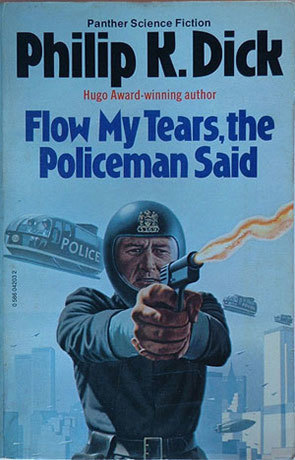
Kendrick Lamar's To Pimp a Butterfly (33 1/3) - Maner, Sequoia
The Nineties - Klosterman, Chuck
Tomorrow, and Tomorrow, and Tomorrow - Zevin, Gabrielle
Wanderlust: An Eccentric Explorer, an Epic Journey, a Lost Age - Mitenbuler, Reid
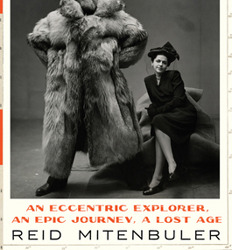
A Heart That Works - Delaney, Rob
Imago (Xenogenesis, #3) - Butler, Octavia E.
Cryptonomicon (Crypto, #1) - Stephenson, Neal
Blacktop Wasteland - Cosby, S.A.
Pearl Jam's Vs. (33 1/3) - Brownlee, Clint
Tracy Flick Can't Win - Perrotta, Tom
Devil House - Darnielle, John
Adulthood Rites (Xenogenesis, #2) - Butler, Octavia E.
Heat 2 - Mann, Michael & Meg Gardiner
Joy Division's Unknown Pleasures (33 1/3) - Ott, Chris
Dawn (Xenogenesis, #1) - Butler, Octavia E.
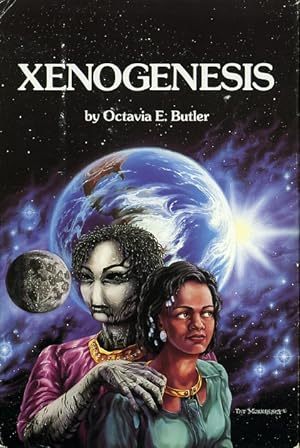
The Diamond Age: Or, a Young Lady's Illustrated Primer - Stephenson, Neal
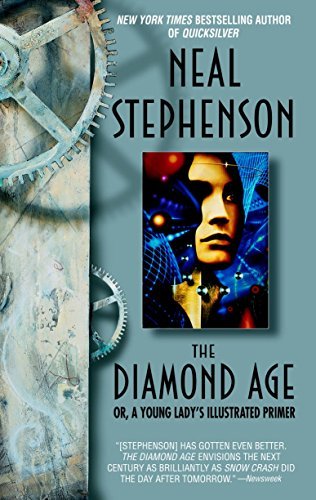
The Republic of Thieves (Gentleman Bastard, #3) - Lynch, Scott
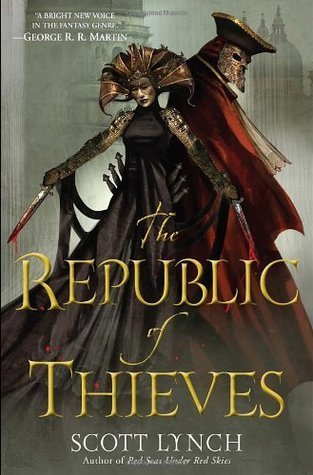
The Year of the Flood (MaddAddam, #2) - Atwood, Margaret
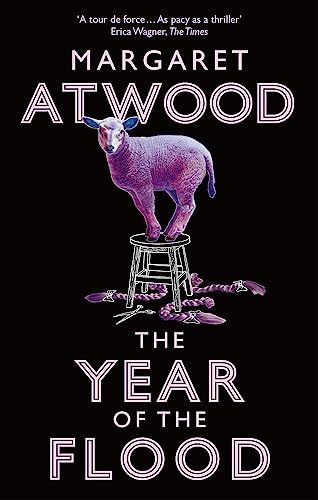
6 notes
·
View notes
Text
Books read in September of 2023
Nights of Plague by Orhan Pamuk. Fiction: historical. A fictional island in the Ottoman Empire inhabited by a Muslim and Greek Orthodox population is left to fend for itself after a plague becomes uncontrollable. This book was long and intricate. Despite the historical setting, the dysfunctional government and religious conflict exacerbating the damage of a plague felt a little too close ot home.
The Confessions of St Augustine. Nonfiction: autobiographical, religious. Augustine's life story and theology. A lot more about time than I would've expected. Sometimes I think he's overdramatic or unhelpful, but then sometimes I'm amazed at his devotion and love for God. Augustine is early enough and influential enough that he's probably going to be vaguely relevant to my studies at some point, so it made sense to read the Confessions.
When We Were Sisters by Fatimah Asghar. Fiction: contemporary, maybe a bit of poetry? This book tells the story of three orphaned sisters who have to make a life for themselves, under the neglect and abuse of their guardian uncle, negotiating issues like the immigration status of their family members, gender and sexuality, and living as Muslims when their access to Muslim community is restricted.
The Memory Police by Yoko Ogawa. Fiction: speculative, dystopian. On an island where things keep disappearing, people who don't forget the disappearing items face persecution from their government. As life gets bleaker and more mundane, the characters of this book resist in small, subtle bursts of color and joy.
Where Reason Ends by Yiyun Li. Fiction: autobiographical, contemporary. A mother has a conversation with her dead teenage son after he commits suicide.
The Age of Wood by Roland Ennos. Nonfiction: history, nature. This book traces how wood has been used throughout history. This book paired well with Teaching the Trees by Joan Maloof, which I read earlier this year.
The Blue Castle by Lucy Maud Montgomery. Fiction: romance. When a 29-year-old woman is told that she only has a year to live, she decides to defy her relatives' expectations and live on her own terms. I found Valancy so deeply relatable that it was a delight to see her crafting the life she wanted. The plot twists in this book are ah... big and melodramatic. I don't think this is LMM's tightest work from a craft perspective, but it was a really enjoyable book and I'd recommend it to my fellow lonely spinsters (with the caveat that it is a romance :/ )
Kibogo by Scholastique Mukasonga. Fiction: historical, contemporary, postcolonial. This book follows a Rwandan village through several generations of religious developments in response to Christian missionaries. This book is critical of missionary colonization in ways that are similar to Things Fall Apart by Chinua Achebe or The Poisonwood Bible by Barbara Kingsolver. I thought the various ways in which characters made sense of Christianity in light of their largely banned yet profoundly present preexisting belief stories was really remarkable.
Oranges by John McPhee. Nonfiction: agriculture, travel. There was a lot of fascinating information about how oranges get to consumers, albeit probably a few decades out of date.
No god but God by Reza Aslan. Nonfiction: history, religion. This book traces the origins and history of Islam. It was published in 2009 and does make some conscious effort to be an apologetic for Islam to a hostile post-911 society. This is one of the books I'm reading to make up for the Islam in America class I had to drop from this semester.
The Namesake by Jhumpa Lahiri. Fiction: contemporary. When their newborn son's prospective name is lost in the mail, a Desi couple living in New England resort to naming him after Russian author Nikolai Gogol, a decision that shapes the trajectory of their son's life.
When I Was a Child I Read Books by Marilynne Robinson. Nonfiction: religion, sociology, economics. This is a collection of essays. I really appreciate the way Marilynne Robinson writes about the Old Testament/Hebrew Bible. I highly recommend this book for Christians who would like to avoid inadvertent antisemitism.
Bee Season by Myla Goldberg. Fiction: contemporary, speculative? This book follows a loving but dysfunctional family of four, each of whom wrestles with religious identity and purpose. There are spelling bees, kaleidoscopes, Jewish mysticism, and the inescapable strain of parent-child relationships caused by individual exploration of faith.
I'm happy to give content warnings for any of these! I really tried to push myself this month, and I feel like it paid off. I managed to get a few books off the really dusty and abandoned depths of my TBR list.
Fiction: 8
Nonfiction: 5
Total books this month: 13
Total fiction this year: 30
Total nonfiction this year: 36
8 notes
·
View notes